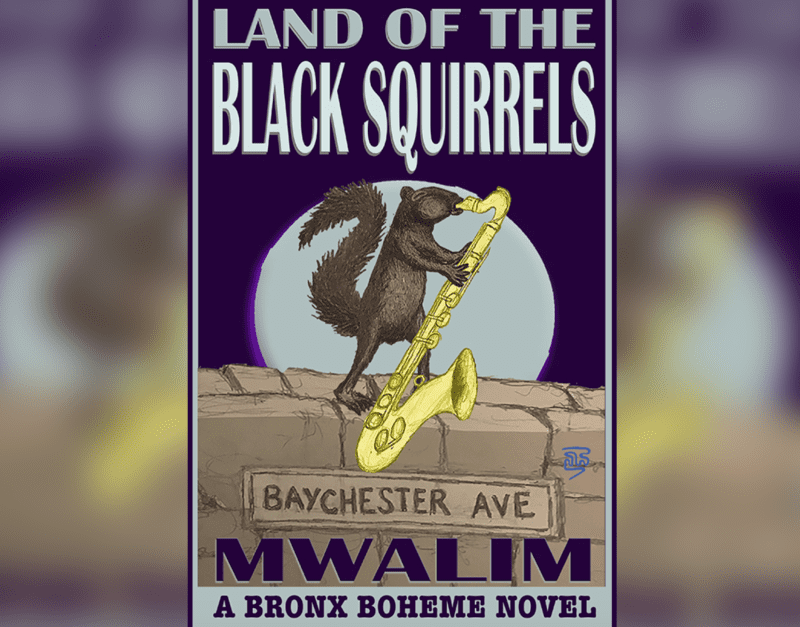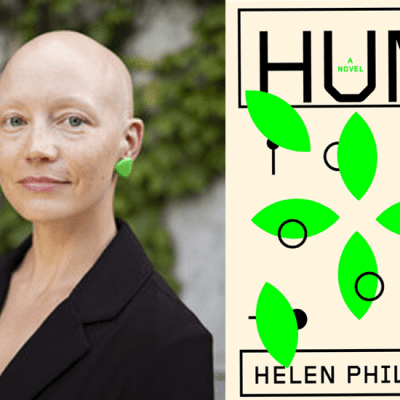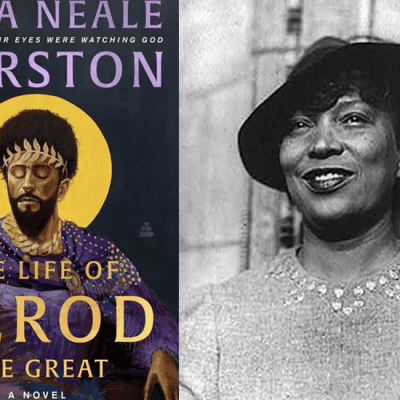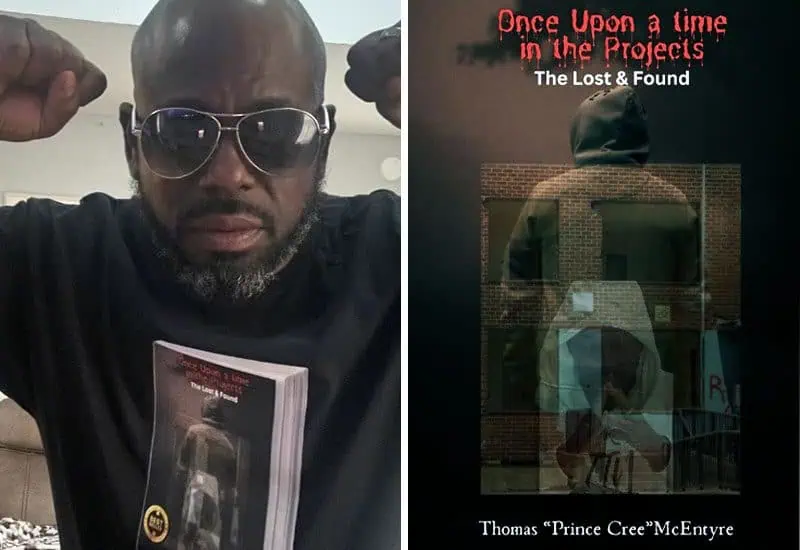
Officially released this month, Land of the Black Squirrels is Mwalim’s debut novel and the first book within his Bronx Boheme series. Outside of writing, Mwalim is also an Award winning, interdisciplinary musician, and currently teaches English and Black Studies at UMass Dartmouth.
The plot reads: “Master storyteller, Mwalim weaves a vibrant and epic Hip-Hop Jazz folktale about the spirits that dwell within the jazz clubs, art galleries, performance spaces, and warehouse lofts transformed into underground dance clubs around New York City.
Our tale begins in 1969, when Black squirrels began to appear in the Bronx. Obatunde Bey, a jazz musician and painter, leaves his desk job at the New York City Parks Department to open an arts academy in his Northeast Bronx neighborhood, “The Valley.” Little did he know that his art house would quietly become the launch-pad of an underground arts movement.”
Land of the Black Squirrels is presumably a fictional tale, but I often wondered how much of it was inspired by the author’s own story. Readers learn about the everyday lives of each character with such detail that one becomes a fly on the wall, peering into different worlds. The novel begins in the 1960s, with a beautiful narration of life in the Bronx. As someone who’s only traveled to New York City once, it was intriguing to read about a city bursting with culture, the styles of the decade, and what a typical night out in the town potentially looked like.
After the first chapter, however, it became evident that timelines do not follow any sort of logical order, which made the novel difficult to follow when one seeks to have a cohesive reading experience. For instance, the narrator began the story in the sixties, jumped back to the fifties, fast forwarded briefly to 2016, and then goes all the way back to the sixties! With this disorganized format, there’s great potential that readers will be understandably lost along the way, or perhaps this time traveling element will be well received. You don’t feel like you’re reading a structured novel, but rather a collection of short stories that somehow still manage to blend together.
Despite this, there are definitely hidden gems within the pages of Land of the Black Squirrels; certain poetic insights that are worth ruminating on. A deserving example: “Music created colors in his head; and the colors would turn into multidimensional landscapes and images, far beyond that of the physical world.”
In my view, the most profound passage within the entire book resides on the very first page. “There’s a place in between being asleep and awake, where our minds are locked into everything that has ever existed or ever will exist. We can see the unseen and feel the intangible. As we drift back into consciousness and our eyes open, the world around us is just a series of patterns of swirling lights, colors and sounds. This is the place where artists dwell, even when they’re in the conscious world.”
This lovely, cerebral, imaginative prose is not continued throughout the book, but I would like to see the author incorporating that style more in the future–it is where he truly shines.
Land of the Black Squirrels is a rather long-winded book. While I appreciate descriptive language, there’s a fine line between relevance to the overall plot and unnecessary fluff that adds little to the story. At one point, I had forgotten that I was supposed to be reading about the Jazz club and spirits who dwelled within such spaces. I found myself wondering when the story that I expected to be reading would truly begin. Nonetheless, there were plenty of times where I valued the author’s verbose language, as it allowed me to more intensely learn about the Bronx and its gentrified changes throughout the decades.
Thus, I’d recommend the novel to anyone who’s curious about African culture in New York City, as readers will become fully immersed into the lives of the characters and the unique worlds that they have constructed for themselves. If you’re able to easily keep up with multiple characters and can welcome an unconventional reading experience with open arms, then you’re certainly in for a treat.
To purchase a copy of Land of the Black Squirrels, please visit Amazon.







